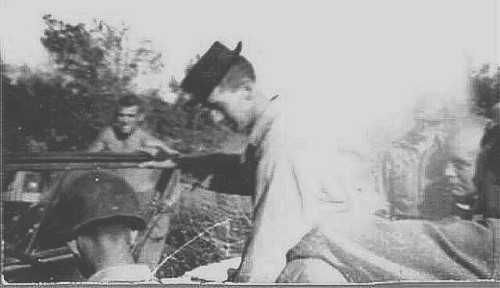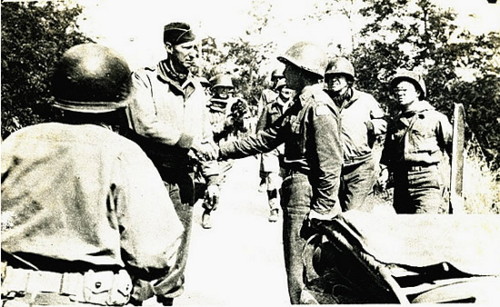Joe, here's this link, and what they have to say about the origins.
http://en.wikipedia.org/wiki/Jeep
The first jeep prototype (the Bantam BRC) was built for the Department of the Army by American Bantam in Butler, Pennsylvania, followed by two other competing prototypes produced by Ford and Willys-Overland. The American Bantam Car Company actually built and designed the vehicle that first met the Army's criteria, but its engine did not meet the Army's torque requirements. Plus, the Army felt that the company was too small to supply the number needed and it allowed Willys and Ford to make second attempts on their designs after seeing Bantam's vehicle in action. Some people believe that Ford and Willys also had access to Bantam's technical paperwork.
Quantities (1500) of each of the three models were then extensively field tested. During the bidding process for 16,000 "jeeps", Willys-Overland offered the lowest bid and won the initial contract. Willys thus designed what would become the standardized jeep, designating it a model MB military vehicle and building it at their plant in Toledo, Ohio.
Like American Bantam, Willys-Overland was a small company and, likewise, the military was concerned about their ability to produce large quantities of jeeps. The military was also concerned that Willys-Overland had only one manufacturing facility: something that would make the supply of jeeps more susceptible to sabotage or production stoppages.
Based on these two concerns, the U.S. government required that jeeps also be built by the Ford Motor Company, who designated the vehicle as model GPW (G = governmental vehicle, P showed the wheelbase, and W = the Willys design). Willys and Ford, under the direction of Charles E. Sorensen (Vice-President of Ford during World War II), produced more than 600,000 jeeps.
The jeep was widely copied around the world, including in France by Hotchkiss et Cie (after 1954, Hotchkiss manufactured Jeeps under licence from Willys), and by Nekaf in the Netherlands. There were several versions created, including a railway jeep and an amphibious jeep. As part of the war effort, Jeeps were also supplied to the Soviet Red Army during World War II.
In the United States military, the jeep has been supplanted by a number of vehicles (e.g. Ford's M151 MUTT) of which the latest is the High Mobility Multipurpose Wheeled Vehicle (HMMWV or "Humvee").
I will keep looking. Anyone else who has anything to add, please jump in and assist the two of us. Thanks in advance.
![]() :pdt40:
:pdt40:
